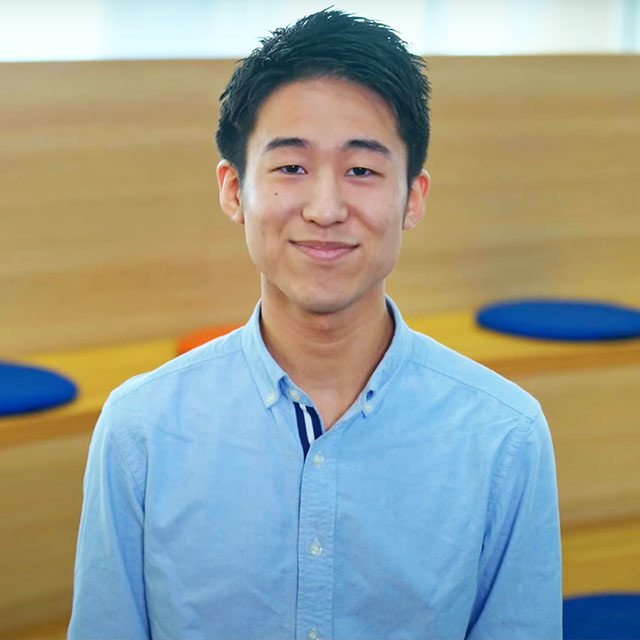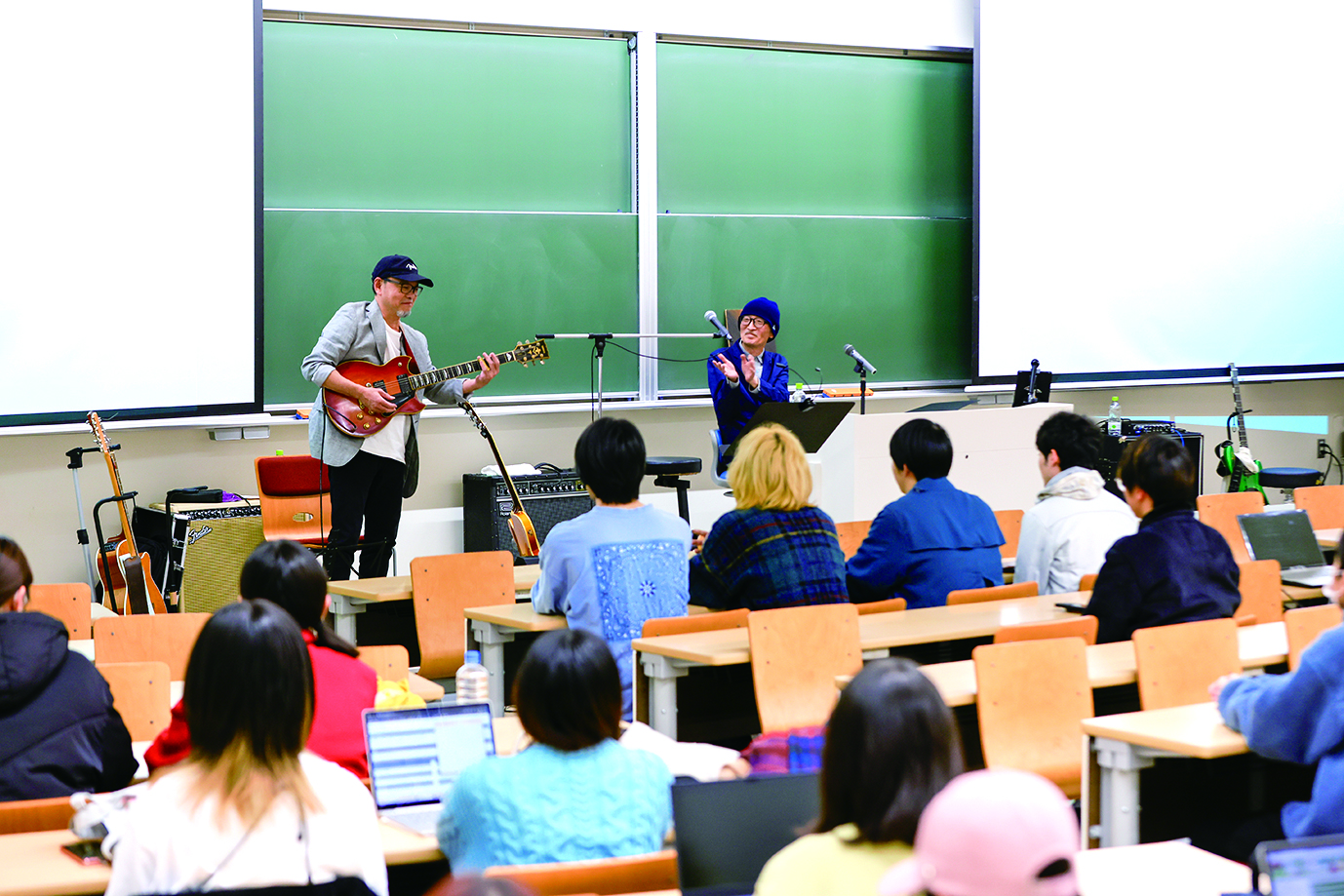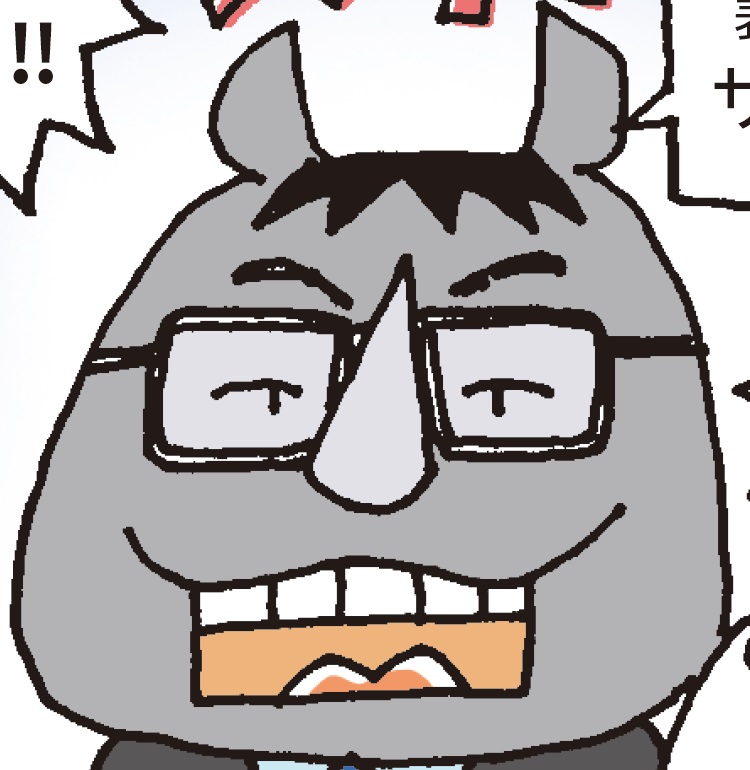
Faculty of Letters
Department of Human Studies (5 courses, 1 major)
Faculty Overview
Turn that "fun" into the "power" to survive in the future!



Faculty of Letters Department of Human Studies was given three guidelines by the founder in 2007.
"Seeker of the Sanctity of Life"
"World Citizens Connecting Humanity"
"The Victorious Leader of Humanism"
Based on this, we provide learning that transforms what you like and what is interesting into the power to survive in the future.
At the Department of Human Studies Faculty of Letters Soka University, you can acquire the "human skills" that will enable you to design a life that is uniquely yours, and together we can pave the way for your own happiness, as well as happiness for society and the world.
























Faculty Features 01
"Life design ability"
A curriculum that you can learn
During your first and second years, you will think about your own life with the support of faculty and senior students in courses such as the "First-Year Seminar" and "School of Faculty of Letters Learning and Life Design."
After that, in their third and fourth years, students will deepen their expertise through five courses and one major, and connect their interests and concerns to the future.
It is possible to deepen your expertise with a clear goal in mind starting from your first year.
Another major feature of our single Department of Human Studies Department is that students can study a wide range of academic fields in a cross-disciplinary manner while focusing on one academic field.

Faculty Features 02
Faculty Faculty of Letters, Department of Human Studies
Five diverse courses and one specialization

Students will acquire in-depth specialized knowledge in areas such as English literature, interpretation/translation, and English language education, as well as practical English skills and intercultural understanding, and will acquire the ability to thrive in a global society.

By honing their knowledge and sensibilities regarding works of art such as novels, manga, movies, and plays, and by trying their hand at creative writing, students will improve their powers of expression and their ability to design their lives.
Faculty Features 03
Junior and senior high school teachers
Social Worker
Aiming to become a Japanese language teacher
In the Department of Department of Human Studies Faculty of Letters, students can aim to obtain teaching licenses for junior high school teacher type 1 (English, Japanese, Social Studies), high school teacher type 1 (English, Japanese, Geography and History, Civics), social worker (national qualification) who is a welfare professional, and Japanese language teacher. We also offer a wide variety of programs.

curriculum
Four years where you will surely find something interesting!
First year
Expose yourself to a wide range of specialized fields through introductory courses!
Through introductory courses across five courses and one major, you will discover new and interesting things.
[Introductory Courses] "Introduction to English Culture", "Introduction to Japanese Language and Culture", "Introduction to Society, History, and Human Culture", "Introduction to Expression Culture", "Introduction to Philosophy and Religious Studies", "Introduction to Social Welfare"
Second Year
Find your learning!
In the "School of Faculty of Letters Learning and Life Design" course, students will think about learning and their own lives.
We will use the new interests you discover in your first year to develop your own learning and future.
* Social welfare majors begin in the second year after passing a selection exam in September of the first year.
Third Year
Seminars have started! Deepen your expertise through five courses!
English and English Culture Course, Japanese Language and Culture Course, Society, History and Anthropology Course,
You will deepen your expertise in the Expressive Culture course, Philosophy, Religion, and Thought Culture course, and (Social Welfare Specialization).
Fourth Year
Summarize your four years of learning through your "Graduation Research"!
As you progress with your graduation research, you will culminate your learning in your career path. You will connect the learning you have acquired over the past four years to your own career path.
Career Paths and Qualifications
Post-graduation career paths and qualifications
Main career paths after graduation
Graduates have gone on to have a wide range of careers, including working for global IT companies, various civil servants, and middle and high school English, Japanese, and social studies teachers. In the private sector, they can also choose to work in the fields of "wholesale and retail," "transportation, communications, and services," and "manufacturing" by utilizing their language skills and problem-solving abilities. Many graduates also go on to study abroad or graduate school in Japan and abroad, and are active in the academic and cultural worlds.
Qualifications that can be acquired
We boast the highest success rate among private schools in teaching profession (High school I: English, geography, history, civics, Japanese; junior high school I: English, social studies, Japanese), qualification to take the national social worker exam, and national and local government. We also provide support for TOEIC, Eiken, Chinese Proficiency Test, Russian Proficiency Test, Japanese Language Proficiency Test, etc. In addition, every year we produce a large number of students who find employment in domestic and foreign companies, and who go on to graduate schools in Japan and abroad.




























